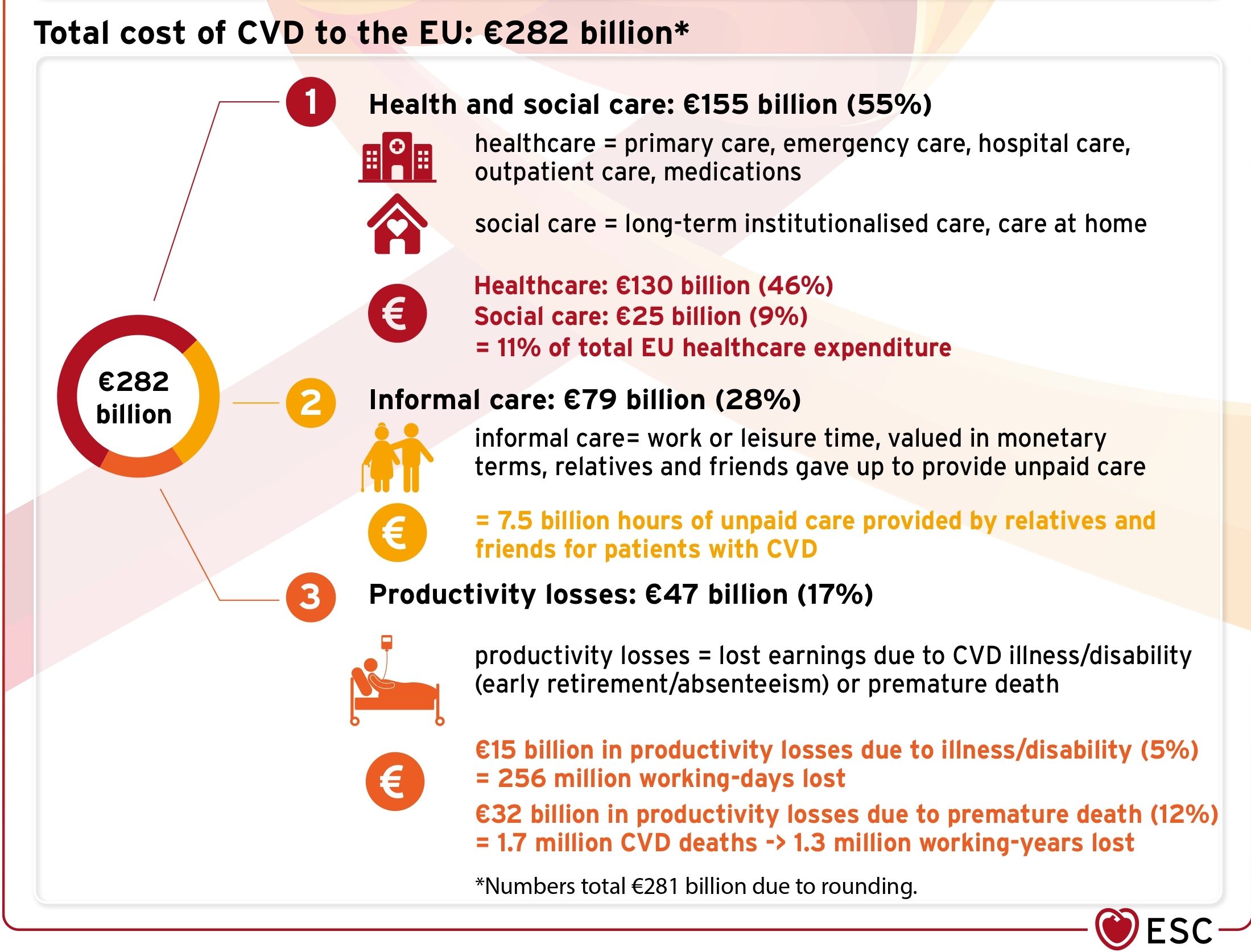New research presented at the ESC Congress 2023 reveals that cardiovascular disease (CVD) costs the European Union (EU) an estimated €282 billion in 2021. The analysis was a collaborative study by the European Society of Cardiology (ESC) and the University of Oxford, UK. This figure highlights the significant impact of CVD on the region.
Dr Ramon Luengo-Fernandez, the lead author from the University of Oxford, emphasised the economic significance of CVD, stating that this €282 is equivalent to 2% of Europe's GDP and surpasses the entire EU budget used to fund research, agriculture, infrastructure, and energy across the EU.
This study is the most comprehensive and up-to-date evaluation of the economic implications of CVD in the EU since 2006. This study utilised Europe-wide patient registries and surveys, offering a more accurate assessment. A distinct feature of this research is its inclusion of long-term social care costs, setting it apart from earlier studies.
The study breaks down the estimated costs of CVD's impact on the 27 members of the EU in 2021 in three categories:
- Health and Social Care: This category accounts for €155 billion (55%) of the total costs. This amount corresponds to 11% of the EU's overall health expenditure. The expenses within this category span various facets of healthcare, including primary care, emergency care, hospitalisation, outpatient care, and medications. Social care included long-term institutionalised care and home-based care. Hospital care cost €79 billion, representing 51% of CVD-related care costs. CVD medications accounted for €31 billion (20%) of care costs, and residential nursing care homes cost €15 billion (9%).
- Informal Care: Relatives and friends provided around 7.5 billion hours of unpaid care for individuals affected by CVD. In terms of monetary value, this unpaid care equates to €79 billion across the EU.
- Productivity Losses: The study indicates that CVD led to significant productivity losses in the EU. These losses stem from two main factors: illness or disability and premature death. In terms of lost earnings, this incurred costs of €15 billion due to factors. CVD-related premature deaths resulted in the loss of 1.3 million working years and generated productivity losses totalling €32 billion.

Geographical disparities are also evident. The cost per EU citizen ranged from €381 in Cyprus to €903 in Germany, highlighting the varying economic burden within the EU.
Professor Victor Aboyans of Limoges University, France, an ESC Board member and study author, highlighted the need for collaborative action at the European level to mitigate cardiovascular risks. He stressed the importance of regulatory measures for enhanced prevention and investments in research.
Professor Panos Vardas, Chief Strategy Officer of the European Heart Agency, echoed the need for a collective response. He said the study's findings should drive the EU and its member states to reassess their approaches to cardiovascular healthcare expenditure to better address gaps and optimise support for those affected by CVD.
Source: ESC Congress
Poster and Image Credit: ESC Congress



























